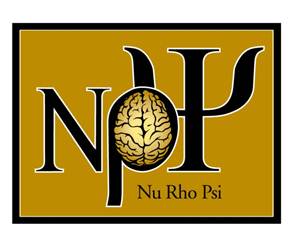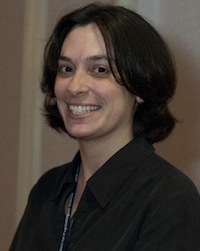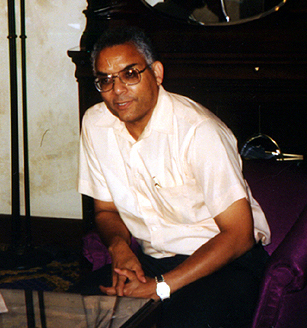Related Research Articles

Pramod P. Khargonekar is the Vice Chancellor for Research and Distinguished Professor of Electrical Engineering and Computer Science at the University of California, Irvine. An expert in control systems engineering, Dr. Khargonekar has served in a variety of administrative roles in academia and federal funding agencies. Most recently, he served as assistant director for Engineering at the National Science Foundation (2013–2016), and as deputy director for Technology at the Advanced Research Projects Agency – Energy. From 2001 through 2009 he was the Dean of the College of Engineering at the University of Florida.

Carlos Castillo-Chavez is a Mexican-American mathematician who was Regents Professor and Joaquín Bustoz Jr. Professor of Mathematical Biology at Arizona State University. Castillo-Chavez was founder and the Executive Director of the Mathematical and Theoretical Biology Institute (MTBI) and the Institute for Strengthening the Understanding of Mathematics and Science. For 2019, Castillo-Chavez was Provost Visiting Professor in the Applied Mathematics Division and Data Science Initiative at Brown University. Castillo-Chavez retired from Arizona State University at the end of spring 2020.

The Princeton University Department of Psychology, located in Peretsman-Scully Hall, is an academic department of Princeton University in Princeton, New Jersey. For over a century, the department has been one of the most notable psychology departments in the country. It has been home to psychologists who have made significant scientific discoveries in psychology and neuroscience, such as adult neurogenesis in primate brains, the concept of the cognitive miser, bystander non-intervention, face-selective neurons in primate brains, feature integration theory, mental models theory, and prospect theory.
York University Faculty of Health was founded in 2006. Led by Dean Paul McDonald, it is based in Toronto, Ontario, Canada and is part of York University's campus of 50,000 students.
Norman Tenner Adler through his research, teaching, writing, and academic administration, made major contributions to the modern study of biological psychology and in American higher education, having helped develop the fields that are now labeled behavioral neurobiology and evolutionary psychology. One of Adler's prominent experiments included an in depth analysis of mating performance of male rats and its relation to fertilization in the female, which led him to observe how behaviour could affect reproduction in species. With his students and colleagues, he has worked at the interface between biology and behavior. They have stressed the importance of combining the study of physiological mechanisms controlling behavior with the functional/adaptive significance of behavior in an evolutionary context. He was influenced in this approach by his undergraduate teachers at Harvard, especially Paul Rozin, Jerry Hogan, and Gordon Bermant, and his student colleagues like Don Pfaff with whom he has maintained scientific relationships over the years. His research was also impacted by Daniel Lehrman, and he worked closely with Lehrman's student, Barry Komisaruk, on hormones and neural functioning. Adler is also a prominent figure in American higher education, especially the role of behavioral neuroscience in liberal arts education and religion in the college classroom. He participated in Phillip Zimbardo's PBS TV series Discovering Psychology, one of the first distance-learning courses in psychology.

Martha Euphemia Lofton Haynes was an American mathematician and educator. She was the first African American woman to earn a PhD in mathematics, which she earned from the Catholic University of America in 1943.
The College of Science at Virginia Tech contains academic programs in eight departments: biology, chemistry, economics, geosciences, mathematics, physics, psychology, and statistics, as well as programs in the School of Neuroscience, the Academy of Integrated Science, and founded in 2020, an Academy of Data Science. For the 2018-209 academic year, the College of Science consisted of 419 faculty members, and 4,305 students, and 600 graduate students. The college was established in July 2003 after university restructuring split the College of Arts and Sciences, established in 1963, into two distinct colleges, the other half becoming the College of Liberal Arts and Human Sciences. Lay Nam Chang served as founding dean of the College of Science from 2003 until 2016. In 2016, Sally C. Morton was named dean of the College of Science. Morton served in that role until January 2021, when she departed for Arizona State University and Ronald D. Fricker—senior associate dean and professor in the Department of Statistics—was named interim dean of the College. In February 2022, Kevin T. Pitts was named the third official dean of the College of Science.
Sylvia D. Trimble Bozeman is an African American mathematician and Mathematics educator.

Nu Rho Psi is the National Honor Society in Neuroscience, founded in 2006 by the Faculty for Undergraduate Neuroscience and now an independent honor society. Nu Rho Psi is a non-profit, grass-roots organization of neuroscientists and is governed by a National Council elected by the members. Charters have been awarded to chapters at colleges and universities in all regions of the United States of America. As of November 2021 Nu Rho Psi has installed 98+ chapters and initiated 7,000+ lifetime members. Prominent honorary members include Dr. Larry Squire, Dr. Robert Sapolsky, Bruce McEwen and the 14th Dalai Lama of Tibet.

Sharon Thompson-Schill is a Professor of Psychology at the University of Pennsylvania in Philadelphia, Pennsylvania. Her research covers the field of biological basis of human cognitive systems, including language, memory, perception, and cognitive control, and the relationships between these systems. As of 2023, she has produced more than 190 scientific publications, which collectively have been cited over 18,000 times.
Jorge Alberto López is a physicist and educator and the Schumaker Professor of Physics at the University of Texas at El Paso. He is known for his work in heavy ion collision dynamics and for his outreach to the Hispanic community in the United States to increase diversity in physics, effective teaching and mentoring of undergraduate students, development of bilingual physics education programs, and building collaborations between American and Latin American universities. He is one of the founders of the National Society of Hispanic Physicists and author of books on nuclear physics, surface science, and statistical analysis of elections.

Raymond Lewis Johnson is an American mathematician, currently a professor emeritus at the University of Maryland, College Park and an adjunct professor of mathematics at Rice University. He was the first African-American student at Rice University, and the first African-American mathematics professor at the University of Maryland. His research concerns non-well-posed problems and harmonic analysis.
Minerva Cordero Braña is a Puerto Rican mathematician and a professor of mathematics at the University of Texas at Arlington. She is also the university's Senior Associate Dean for the College of Science, where she is responsible for the advancement of the research mission of the college. President Biden awarded her the Presidential Award for Excellence in Science, Mathematics, and Engineering Mentoring (PAESMEM) on February 8, 2022.

Erika Tatiana Camacho is a Mexican and American mathematical biologist and professor of mathematics at the University of Texas at San Antonio. She is a 2014 Presidential Award for Excellence in Science, Mathematics, and Engineering Mentoring (PAESMEM) awardee. She was taught and mentored in high school by Jaime Escalante, who was the subject of the movie Stand and Deliver.
Beronda Montgomery is a writer, science communicator, and researcher. In 2022, she moved to Grinnell College as professor of biology and vice president for academic affairs and dean of the college. Prior to Grinnell, Montgomery served as Michigan State University Foundation Professor in the Departments of Biochemistry & Molecular Biology and of Microbiology & Molecular Genetics. She was also a member of the MSU-DOE Plant Research Laboratory. Her research group investigates how photosynthetic organisms adapt to changes in their environment. Her scholarship extends beyond biology and into studying mentorship and faculty development to develop evidence-based strategies to foster equity and inclusion in academia. Together with Tanisha Williams and other members of the Black Botanists Week organizing committee, Montgomery co-founded and co-organizes Black Botanists Week.
Ulrica Wilson is a mathematician specializing in the theory of noncommutative rings and in the combinatorics of matrices. She is an associate professor at Morehouse College, associate director of diversity and outreach at the Institute for Computational and Experimental Research in Mathematics (ICERM), and a former vice president of the National Association of Mathematicians.
Adriana Galván is an American psychologist and expert on adolescent brain development. She is a professor of psychology at the University of California, Los Angeles (UCLA) where she directs the Developmental Neuroscience laboratory. She was appointed the Jeffrey Wenzel Term Chair in Behavioral Neuroscience and the Dean of Undergraduate Education at UCLA.

Sherilynn Black is an American neuroscientist. She is an associate vice provost for faculty advancement, as well as an assistant professor of the practice of medical education at Duke University in Durham, North Carolina.
Maria Cristina Villalobos is an American applied mathematician at the University of Texas Rio Grande Valley, where she is Myles and Sylvia Aaronson Endowed Professor of mathematics, associate dean of sciences, and director of the Center of Excellence in STEM Education. Her research interests include mathematical optimization, control theory, and their application to retinitis pigmentosa treatment and to antenna design.
References
- ↑ "President Honors Outstanding Science, Math, Engineering Mentors". whitehouse.gov . 21 January 2011. Retrieved March 30, 2016– via National Archives.
- ↑ "Ramirez First Psychologist to Receive NSF Director's Award for Distinguished Teaching". Aps Observer. 17. Association of Psychological Science. 3 September 2004. Retrieved March 30, 2016.
- ↑ "Julio Ramirez '77: The Presidential Award for Excellence". Fairfield University Magazine. Fairfield University. Retrieved March 30, 2016.
- ↑ "Prof. Julio Ramirez Receives Prestigious Society for Neuroscience Award". Davidson College. YouTube. Retrieved March 30, 2016.
- ↑ "DISTINGUISHED DAVIDSON NEUROSCIENTIST RECEIVES FURTHER NATIONAL ACCLAIM". Bill Gudiz. Davidson College. Archived from the original on April 14, 2016. Retrieved March 30, 2016.
- ↑ "Society for Neuroscience Announces Achievement Awards". Society of Neuroscience. Retrieved March 30, 2016.